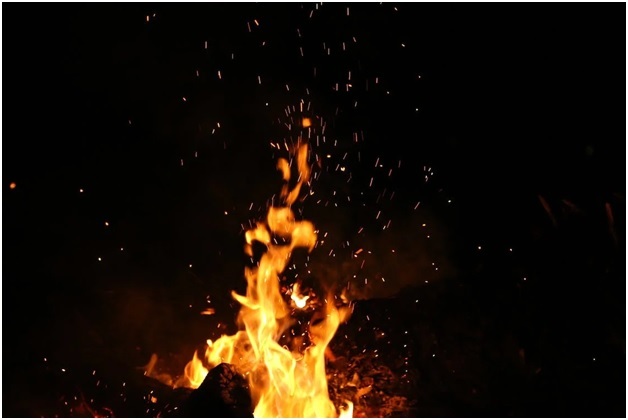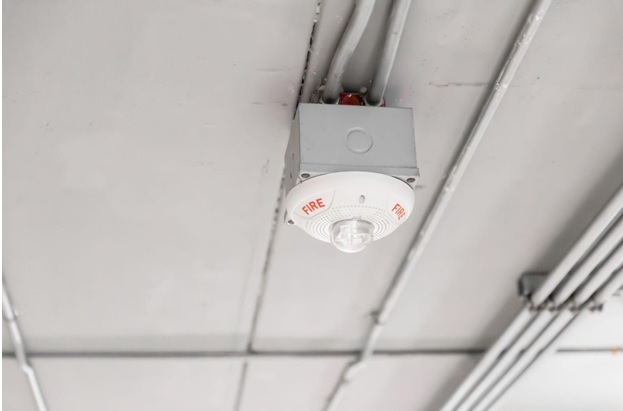Basic Information About AWG Fire Alarm Cable
24th Mar 2023
At EWCS Wire, we sell a wide range of specialized electrical wire and cable, including but not limited to flexible welding cable for sale, marine battery cable, solar PV wire, and armored cable.
We also sell a wide range of AWG fire alarm cable, and not all fire alarm cable is made equal.
Here are a few things you might need to know.
What Is AWG?
First and foremost is the AWG designation at the front of “AWG fire alarm cable.”
AWG stands for “American Wire Gauge,” which is a system of denotation that serves as the standard for electrical wire and cable in North America.
American Wire Gauge, which may also be referred to as “Browne and Sharpe Wire Gauge” or simply as “wire gauge” was first introduced in 1857.
It is an inverse scale, so be aware that the smaller the gauge, the larger the wire, and that therefore smaller gauge wires can handle larger voltage and current than larger gauge wires.
What Is Fire Alarm Cable Used for?
Fire alarm cables are, obviously, used for fire alarm systems, but what you might not know is that these cables can also be used for a wide range of other applications.
Other suitable applications of fire alarm cable include but are not limited to voice communications systems, microprocessor-controlled systems, security and burglar alarms, and other systems with low-voltage requirements.
This makes fire alarm cable suitable for much more than simply wiring fire alarm systems; it can be used as instrumentation cable in a wide range of other scenarios.
Can Fire Alarm Cable Be Used for Other Signalling, Monitoring, and Instrumentation Applications?
As stated, AWG fire alarm cable can be used for many other applications, and not just for wiring fire alarm systems, smoke detectors, and smoke alarms.
Fire alarm cable can be used in a wide range of low-voltage applications, such as wiring some backup safety lighting, security alarms, and communications systems.
However, it is important to match the specifications of the cable to the setting. Moreover, it is often unnecessary to use fire alarm cable when another type of cable will suffice.
If you have any questions about this, contact us or an electrical engineer.
What Are the Types of Fire Alarm Cable?
There are several different types of AWG fire alarm cable, some of the main types of which are detailed below.
Power-limited fire alarm cable, also known as FPL, is a type of fire alarm cable that is most often used because it is fairly inexpensive. It is commonly used to run through riser space, or the vertical spaces between floors of a building.
FPL cables should be fire-retardant; they should have passed both UL 1424 and 1581 (vertical flame test.)
FPLR cables, or fire power-limited riser-rated cables, are also useful for installation in riser space, but they generally offer better protection against heat and flame. These cables must self-extinguish, emit little to no harmful smoke when heated, and pass UL 1424 and 1666.

FPLP, or fire power-limited plenum-rated cables, are suitable for use in plenum space, which is the space above drop ceilings or raised floors. These cables must also self-extinguish and produce minimal harmful smoke when heated. They must pass UL 1424 and be 910 compliant (the standard for smoke propagation and smoke density).
Does Fire Alarm Cable Have Any Special Characteristics That Set It Apart from Other Instrumentation Cables?
Yes, quite a few. These special characteristics are actually what make it fire alarm cable in the first place.
Both the National Electric Code (NEC) and Underwriters Laboratory (UL) maintain and uphold standards that these electrical cables must meet in order to be installed in plenum and riser space as fire alarm cable.
There is a range of specific certifications that each of them must uphold, but in general, fire alarm cable must have high heat resistance, self-extinguish when ignited, produce little to no flaming, molten plastic drips, and produce little to no toxic smoke when it burns (depending on the certification applicable and its intended purpose).
Fire alarm cables must also sometimes be shielded in order to protect them against electromagnetic interference, or EMI - see below.
What Is Shielding?
Some instrumentation cables used in fire protective and signal circuits are also shielded. Shielding is a feature of some electrical wires that protects them against electromagnetic interference, or EMI.
EMI is a form of electrical activity in the radio frequency spectrum that can interfere with, even interrupt, the signal carried by an electrical cable. When signal-carrying conductors are exposed to EMI, it can prevent them from reaching their destination or scramble them.
EMI can arise from both manmade and natural causes. Natural causes of EMI include but are not limited to electrical storms and solar activity.
However, many forms of EMI arise from manmade origins. Electrical systems that produce high voltage or current, such as electric starters. Radio transmitters and digital processors are also causes of EMI.
Shielding often takes the form of a conductive layer, like a metallic foil, that encloses the contained cables, producing a sort of Faraday cage that protects the wires within against EMI.
Shielding is often necessary for applications in which there is a high amount of EMI and in which signal quality and fidelity are prime concerns. Shielded cables should also be used anywhere that EMI is a concern.

Still Have Questions About AWG Fire Alarm Cable? Contact Us
Hopefully, this answered some of your questions about AWG fire alarm cables, and you can learn more via the previous link. We carry a wide range of fire alarm cables that carry unique specifications and you can learn more about them there.
However, if you still have questions about our different instrumentation and alarm systems, feel free to get in touch with us at 1-800-262-1598 or Sales@EWCSWire.com. Our knowledgeable staff would be more than happy to clear up any lingering questions you have about fire alarm cables or instrumentation cables in general.

